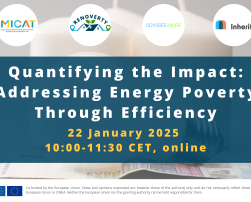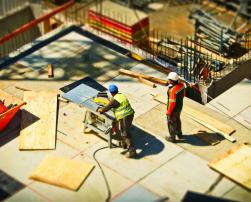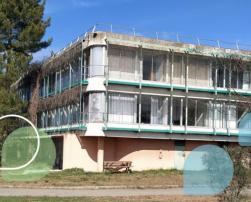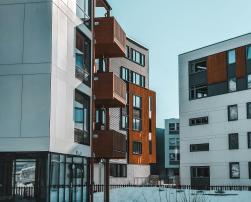
This webinar seeks to highlight the necessity for energy efficiency policies which address the specific needs of understudied regions and/ or contexts faced with unique challenges, like rural areas, and the tools which can complement these.

This webinar seeks to highlight the necessity for energy efficiency policies which address the specific needs of understudied regions and/ or contexts faced with unique challenges, like rural areas, and the tools which can complement these.

The H2020 Infinite project in Slovenia showcases a sustainable building retrofit using prefabricated panels and energy-efficient solutions, reducing costs and inspiring future eco-friendly renovations across Europe.

The office building in Aix-en-Provence, built in the 1970s, has an SRI score of 39%. Suggested improvements, like upgrading the heating, lighting, and ventilation systems, adding solar panels, and installing motorised sun protections, could raise its score to 51%, enhancing energy efficiency, comfort, and flexibility.

A study on two Italian residential renovation projects highlights how Positive Energy Districts (PEDs) leverage energy efficiency, lifecycle assessments, and green certifications to promote sustainable urban development and energy self-sufficiency.

The DOMUS program supports residential energy rehabilitation with tailored services, leveraging local expertise, digital tools, and diverse funding to promote sustainable building decarbonisation.

Hauts-de-France Pass Renovation supports homeowners and municipalities with energy-efficient home renovations by providing integrated technical and financial services, including consultations, project management, low-interest loans, and post-renovation support.

La seconda tappa del REbuild Tour 2024/2025, svoltasi a Roma, ha sottolineato l'importanza della sostenibilità nel settore immobiliare, evidenziando la necessità di metriche affidabili e soluzioni per migliorare la vivibilità e la funzionalità degli ambienti urbani.

The building sector drives 40% of EU energy use and 36% of emissions, with green financing tools like sustainable loans, green bonds, EPCs, PPPs, and EU grants promoting energy-efficient construction and renovation.

The EU Building Policy Tracker highlights progress and gaps in decarbonising EU buildings by 2050, emphasising the need for clearer long-term targets, circularity, and stronger financial mechanisms to meet climate goals.

The Affordable Housing Initiative (AHI) aims to renovate 35 million buildings by 2030, create green jobs, and promote sustainable, affordable housing across Europe through innovative, community-focused projects.